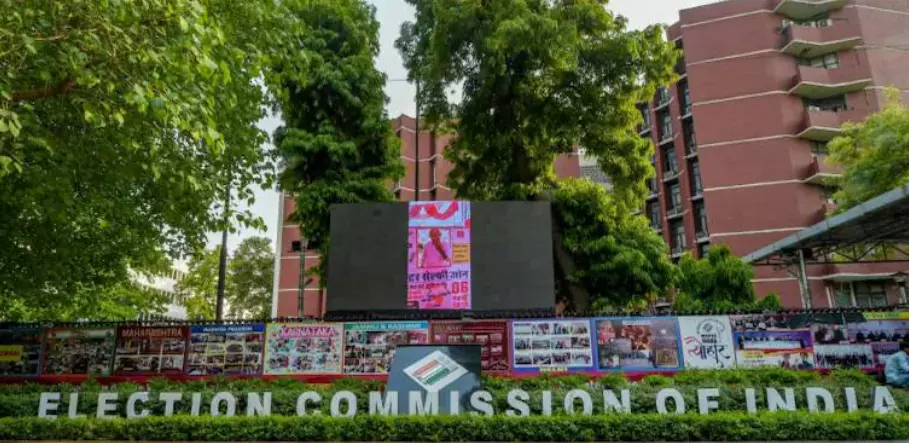
Explained: What key changes has Centre made to Bill on appointment of CEC, ECs
One of the amendments states that the CEC and other commissioners shall be paid a salary which is equal to the salary of a judge of the Supreme Court

A revised version of the contentious Bill to appoint the Chief Election Commissioner (CEC) and other Election Commissioners (ECs) is now before the Rajya Sabha for consideration after the Centre made key changes to it following protests by the Opposition and former CECs.
Here’s all you need to know about the Bill, why it has raked up a controversy and what are the latest changes made to it:
What is the Bill all about?
The Bill was drafted after a five-judge bench of the Supreme Court in a March 2 ruling said that the CEC and the ECs must be appointed by a committee comprising the prime minister, the leader of Opposition in Lok Sabha and the Chief Justice of India (CJI).
Before the Supreme Court ruling, the election officers were being appointed by the Centre with the President giving it the final seal of approval.
The Centre in deference to the apex court’s ruling, introduced the Chief Election Commissioner and other Election Commissioners (Appointment, Conditions of Service and Term of Office) Bill, 2023, which seeks to replace the Election Commission (Conditions of Service of Election Commissioners and Transaction of Business) Act, 1991.
However, the Centre in the proposed legislation replaced the CJI with a cabinet minister in the selection panel, going against the recommendations of the top court.
The Bill also said that the CEC and ECs, who earlier had the same pay grade as a Supreme Court judge under the new law would have the salary, perks and allowances as that of the cabinet secretary.
Why was the Bill criticised?
The Opposition slammed the Centre for replacing a Union minister with the CJI – as suggested by the Supreme Court – in the panel that will appoint the CEC and ECs. Opposition leaders said it would give the government an upper hand in the selection of the election officers as it will have a majority in the panel.
Both the Opposition and several former CECs also criticised the alleged relegation in position of the CEC and the ECs from the post of a Supreme Court judge to that of a cabinet secretary. They said the decision will go against the independence of the Election Commission.
While the salaries of a Supreme Court judge and a cabinet secretary are the same, former CECs argued it was more about the position than money or perks. They said the position of a Supreme Court judge that the CEC currently enjoys enables him to summon senior officials and even ministers. But the CEC will be stripped of the same if his position is changed to that of a cabinet secretary.
The vehement protests against these clauses in the draft legislation has forced the government to make tweaks to the Bill.
What amendments have been made to the Bill now?
In the fresh version of the Bill, the CEC and ECs will continue to enjoy the status of Supreme Court judges.
“The CEC and other commissioners shall be paid a salary which is equal to the salary of a judge of the Supreme Court,” PTI quoted one of the amendment in the Bill.
Another amendment says a search committee headed by the Union law minister comprising two other members not below the rank of secretary shall prepare a panel of five persons for the selection committee. The original Bill had proposed that the cabinet secretary will head the search committee.
The official amendment also seeks to insert a new clause in the Bill to protect the CEC and election commissioners from court cases while discharging their official duties.
It states that notwithstanding anything contained in any other law for the time being in force, no court shall entertain or continue any civil or criminal proceedings against any and other person who is or was a Chief Election Commissioner or an Election Commissioner.
Another proposed amendment makes it clear that the CEC shall not be removed from his office except in like manner and on the like grounds as a judge of the Supreme Court. It also states that the other ECs shall not be removed from office except on the recommendation of the CEC.

